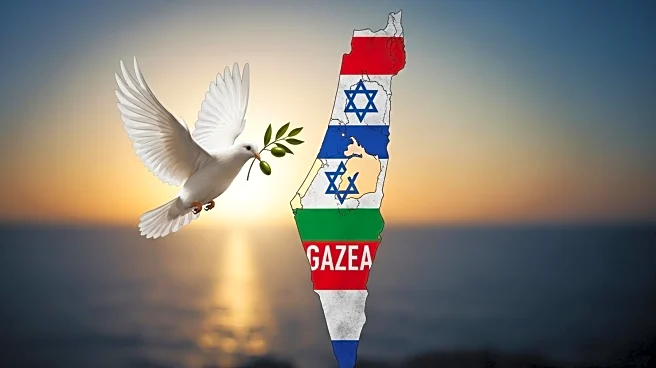What's Happening?
U.S. and Israeli officials met in Washington to discuss the future of Gaza post-conflict, as Israel's military declared the evacuation of Gaza City 'inevitable' ahead of a new offensive. The meeting, involving U.S. Secretary of State Marco Rubio and Israeli Foreign Minister Gideon Saar, focused on regional security, including Iran and the ongoing war in Gaza. The discussions occurred amid international criticism of Israel's military actions and calls for a ceasefire. The U.S. reaffirmed its commitment to Israel's security, while Israel continues to prepare for further military operations in Gaza.
Why It's Important?
The talks between the U.S. and Israel are crucial as they address the future of Gaza and the broader Middle East region. The discussions highlight the strategic alliance between the U.S. and Israel and their shared interests in regional stability. The potential evacuation of Gaza City and continued military operations could exacerbate the humanitarian crisis, affecting millions of residents. The international community's response to these developments will be critical in shaping future diplomatic and humanitarian efforts in the region.
What's Next?
The U.S. and Israel may continue to engage in diplomatic discussions to address the humanitarian situation in Gaza and explore potential ceasefire agreements. International pressure on Israel to halt military operations and prioritize humanitarian aid could increase. The outcome of these talks may influence future U.S. foreign policy decisions and impact regional dynamics, particularly concerning Iran and other neighboring countries.
Beyond the Headlines
The situation in Gaza raises ethical and legal questions about the conduct of military operations and the protection of civilians in conflict zones. The international community's role in mediating peace and ensuring humanitarian access will be critical in addressing the ongoing crisis. The discussions also underscore the complexities of balancing security interests with humanitarian obligations in international relations.











